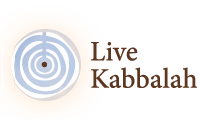Encyclopedia
Bina
Hebrew: Understanding
The third Sefira of The Tree of Life
Known also as Ima (Mother)
The source of life and sustenance for the lower Sefirot
Part of Body: Ears
Bread of Shame
Shame, inability to receive.
Disgrace while receiving a free gift.
Bread of Shame is the main source of problems and troubles in a person’s life. The first condition for human existence and for The Creation is to eliminate the Bread of Shame – becoming A Creator “in the image of God”. That means that whatever we get we have to pay for by giving back, creating Returning-Light and the work in Torah and Mitsvot “Lishmah” (for the sake of unconditional love for The Creator).
Without removing Bread of Shame, we cannot hold any enlightenment, fulfillment, sense of achievement or satisfaction.
Charity
Charity is one of the strongest ways to connect to spiritual powers and draw them to our life. The Arizal teaches us the following meditation while donating money:
While making your donation you meditate on bringing the Light through the letter Yod י (the money), Hey ה (5 fingers of your right hand), Vav ו (your arm, to the Hey ה (5 fingers of the receivng hand – Malkhut). By this you force the Eternal Light to flow through the tree of life, open all blockages and bring Bliss to the whole world. Use the meditation from YouTube: https://youtu.be/b8AzyLFM2AY?feature=shared
Da’at
Hebrew: knowledge
A Sephira that is both Sefirot Hokhma and Bina when they act toward manifesting to the Lower Seven Sefirot
Part of Body: Neck
Gevura
Hebrew: Vigor
The second Sephira of Zeir Anpin’s 6 Sephirot.
Left Column of the Upper Three Sephirot, the power of judgment
Chariot: Isaac the Patriarch
Other names: Din (Judgment)
Part of Body: Left Arm
Halal
The Sephirah of Netsaḥ on the Seder Plate
The name is comprised of the letters רו”ת RUT – Judgment, ס”ח SaḤ – Gematria 68 חיים Life, Ḥesed. Used at the Passover Seder to sweeten the judgments.
Recipe (according to the Ari, Shaar HaKavanot, Vol II, p. 172):
Upper Three – Spices
Cinnamon, Ginger, Spikenard (Arabic Sunbul, according to the Rambam, Shulkhan Arukh and most scholars, Nardostachys jatamansi – can be found at Herbs’ Laboratories (i. e. Chineese Medicine) and stores for exotic herbs, according to some scholars – Laveder)
Lower Seven – Fruits
Grapes (Raisins, Whine), Figs, Dates, Apples, Pears, Hazelnuts and Pomegranates.
Ḥaroset
The Sephirah of Netsaḥ on the Seder Plate
The name is comprised of the letters רו”ת RUT – Judgment, ס”ח SaḤ – Gematria 68 חיים Life, Ḥesed. Used at the Passover Seder to sweeten the judgments.
Recipe (according to the Ari, Shaar HaKavanot, Vol II, p. 172):
Upper Three – Spices
Cinnamon, Ginger, Spikenard (Arabic Sunbul, according to the Rambam, Shulkhan Arukh and most scholars, Nardostachys jatamansi – can be found at Herbs’ Laboratories (i. e. Chinese Medicine) and stores for exotic herbs, according to some scholars – Laveder)
Lower Seven – Fruits
Grapes (Raisins, Whine), Figs, Dates, Apples, Pears, Hazelnuts and Pomegranates.
